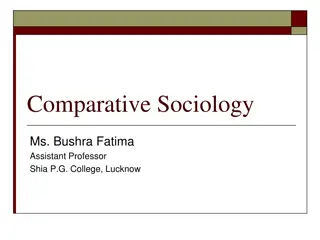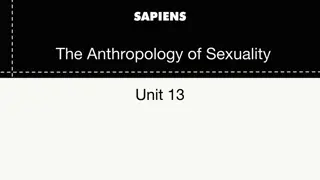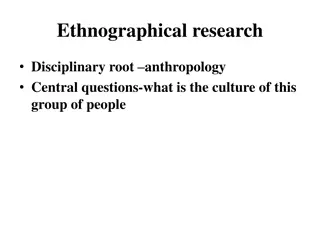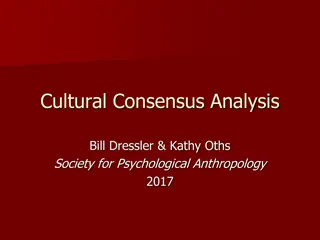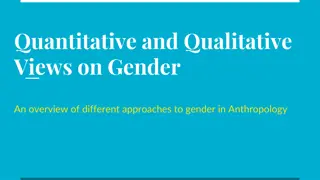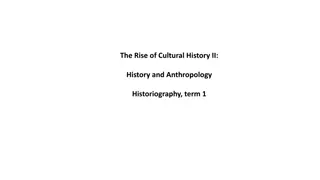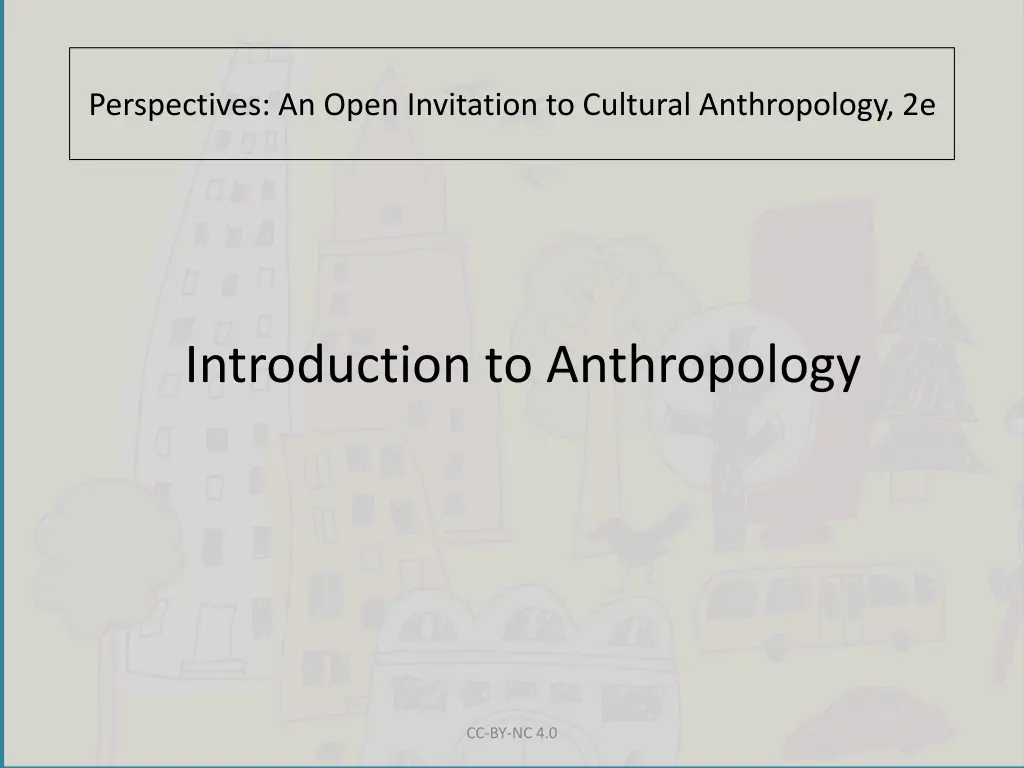
Discover Anthropology: Insights into Human Culture
Uncover the fascinating world of anthropology, exploring the study of humanity, cultural differences, the development of anthropology, and the importance of culture in shaping societies. Delve into the origins of anthropological thinking and how it has evolved over time, highlighting key figures and historical periods. Gain insights into the four subfields of anthropology and learn how this field addresses current global issues innovatively.
Download Presentation

Please find below an Image/Link to download the presentation.
The content on the website is provided AS IS for your information and personal use only. It may not be sold, licensed, or shared on other websites without obtaining consent from the author. If you encounter any issues during the download, it is possible that the publisher has removed the file from their server.
You are allowed to download the files provided on this website for personal or commercial use, subject to the condition that they are used lawfully. All files are the property of their respective owners.
The content on the website is provided AS IS for your information and personal use only. It may not be sold, licensed, or shared on other websites without obtaining consent from the author.
E N D
Presentation Transcript
Perspectives: An Open Invitation to Cultural Anthropology, 2e Introduction to Anthropology CC-BY-NC 4.0
Learning Objectives Four subfields of anthropology Culture Development of anthropology Ethnocentrism How anthropology is unique Using anthropology to address current issues CC-BY-NC 4.0
What Is Anthropology? The study of humanity; everything and anything that makes us human Four academic subfields Cultural Anthropology Archaeology Biological Anthropology Linguistic Anthropology One practical subfield Applied Anthropology CC-BY-NC 4.0
What is Cultural Anthropology? Cultural anthropologists study the similarities and differences among living societies and cultural groups Also ask broader questions about humankind Often study social groups different from their own, but examine subcultures in their own society CC-BY-NC 4.0
What Is Culture? A set of beliefs, practices, and symbols that are learned and shared. Beliefs all mental aspects of culture Practices behaviors and actions Symbols meanings of cultural objects and ideas CC-BY-NC 4.0
What Is Culture? Humans have the capacity to learn any culture Culture changes in response to internal and external factors Humans are not bound by culture, can choose to resist or change it Culture is symbolic Our reliance on culture distinguishes us from other animals and shaped our evolution Culture and biology are interrelated CC-BY-NC 4.0
A Brief History of Anthropological Thinking Early travelers Zhang Qian (164-113 BC) and Ibn Battuta (1304-1369) Age of Discovery (1400-1700s) exploration and exploitation Age of Enlightenment (beginning in 1700s) privileged science and observation 1800s development of science, participant- observation, and cultural relativism CC-BY-NC 4.0
The (Other) Subfields of Anthropology Biological Anthropology study of human origins, evolution, and variation Archaeology study of the material past, using excavation Linguistic Anthropology study of human language Applied Anthropology application of anthropological theories, methods and findings to solve practical problems CC-BY-NC 4.0
Anthropological Perspectives Holism how aspects of human life influence one another Cultural Relativism understanding others from the perspective of their own culture Comparison used to learn about similarities and differences CC-BY-NC 4.0
Anthropological Perspectives Fieldwork ethnography based on participant-observation; descriptive accounts of culture with theory Scientific vs. Humanistic approaches Biological subfield uses a more scientific approach, while Cultural uses a more humanistic approach CC-BY-NC 4.0
Why Is Anthropology Important? Broad knowledge of other cultures skills in observation and analysis critical thinking clear communication applied problem solving The anthropological perspective undermines ethnocentrism and the idea that people are Other CC-BY-NC 4.0
Why Is Anthropology Important? Anthony Kwame Harrison, Virginia Tech Studies the complexities, nuances, and significance of race; how race influences our perceptions of popular music (2009) Bob Myers, Alfred University Studies medical anthropology and public health Lynn Kwiatkowski Studies gender, malnutrition, and power relations in the Philippines; also gender violence in Vietnam CC-BY-NC 4.0

